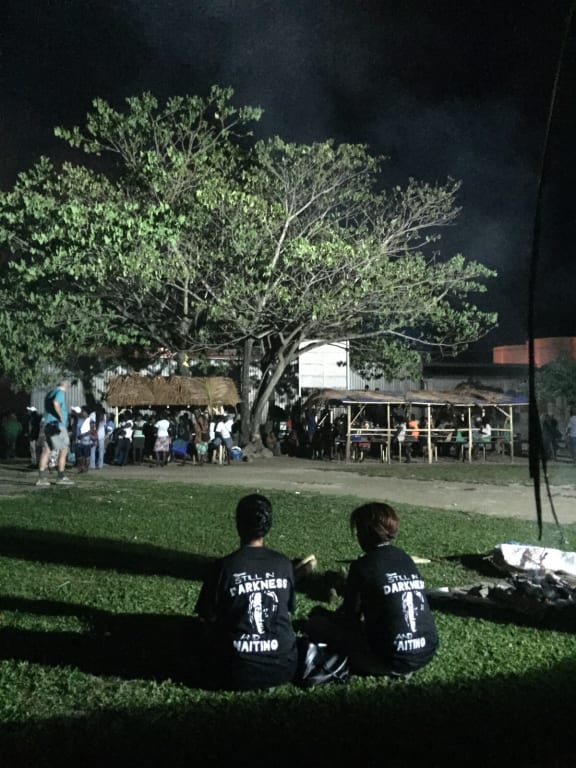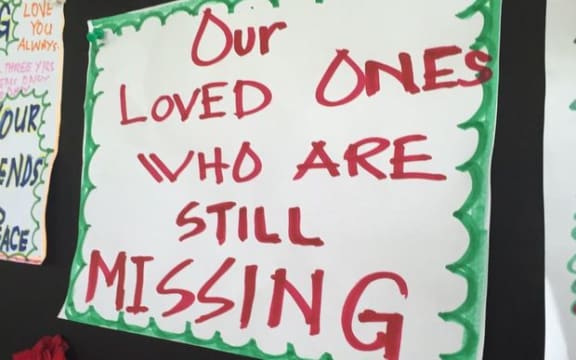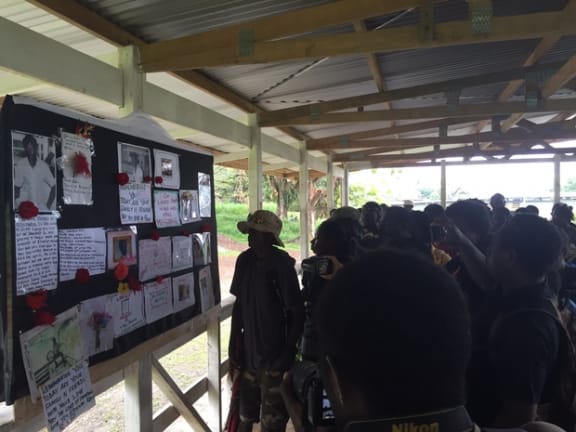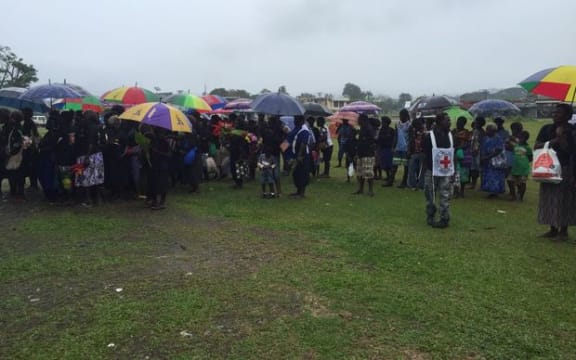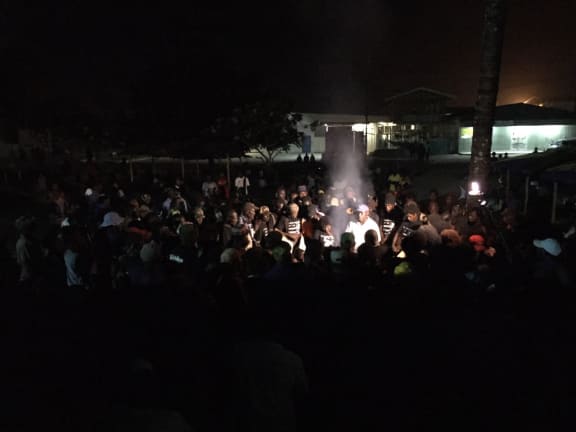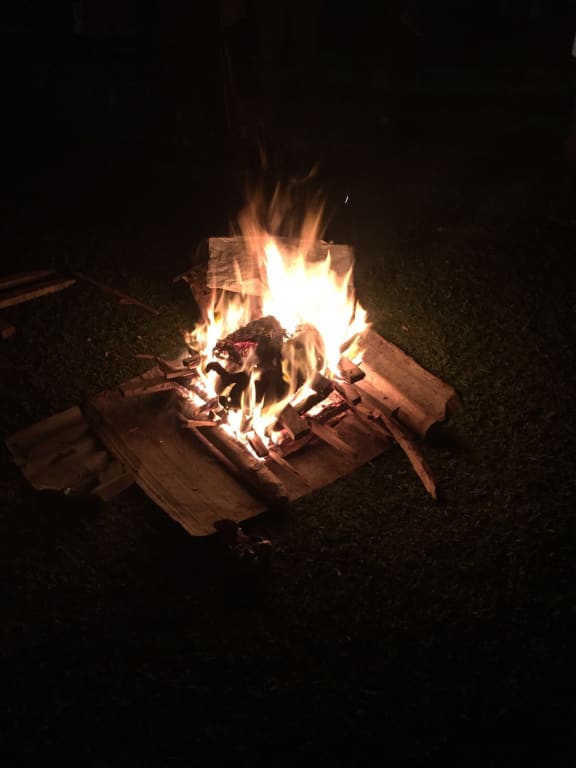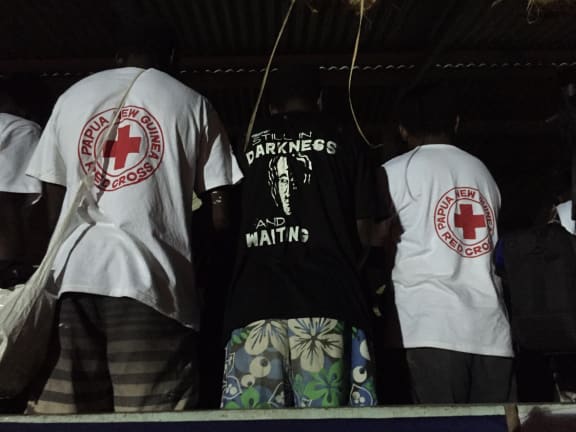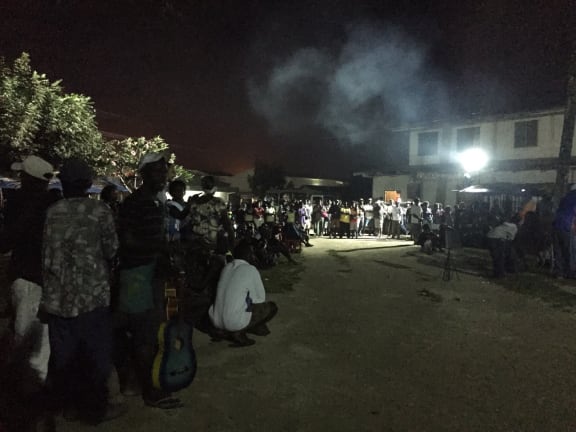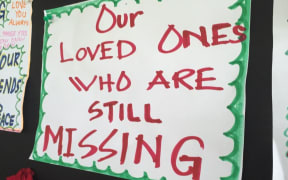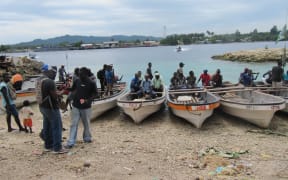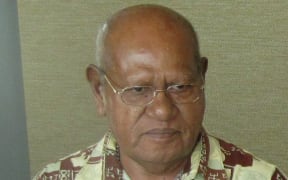In the late 1980s, long-standing tensions over an Australia-run copper mine saw the region of Bougainville descend into a decade-long civil war for independence from Papua New Guinea.
March for the missing in Bougainville.
It was after PNG imposed a blockade on the region in 1990 that Celine Pururau's brother, Paschal, left to take up arms and join the conflict, compelled by what she says was a motivation to save Bougainville from being wrecked by mining and environmental destruction.
"We tried to stop him," she said in an interview 25 years later. "But he did not listen to us, he said he had to sacrifice to save Bougainville."
Paschal, who before the war was a passionate football fan who worked with children around the town of Buka, left to fight Papua New Guinea government forces on Buka island.
His family never saw him again.
"They tell us the story that they buried him in a mass grave," Ms Pururau said. Her situation is not unique.
Almost twenty years since the war's end, the International Committee for the Red Cross says many families still have no idea what happened to their relatives during the war.
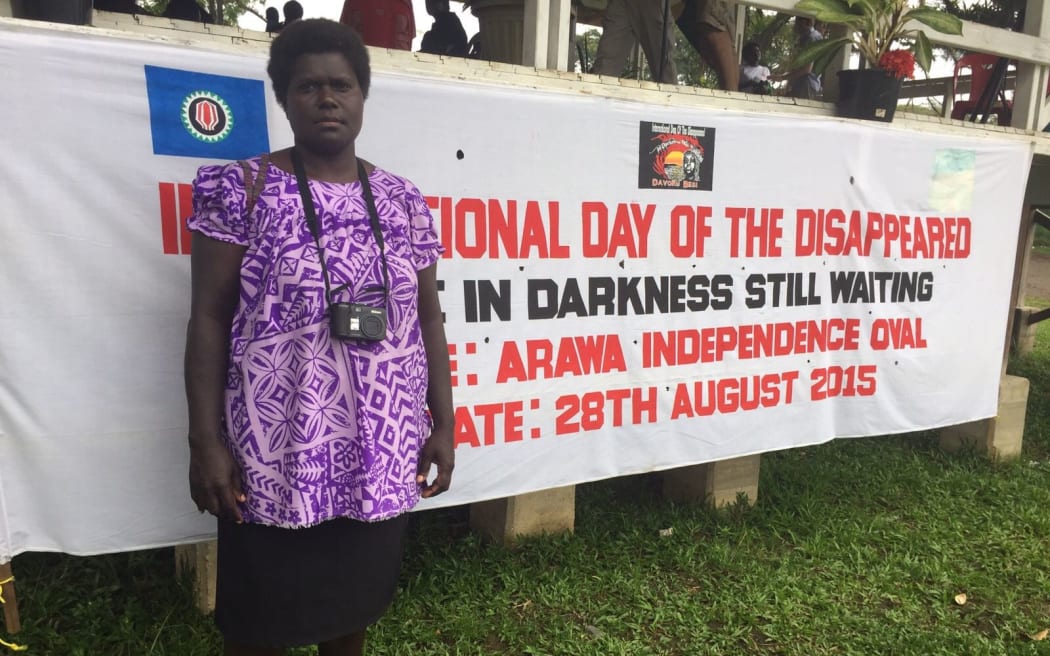
Celine Pururau Photo: ICRC/ Omarsharif Ghyasy
The official end of the conflict was in 1997, when a ceasefire was signed after protracted efforts to negotiate a peace between the two sides.
Estimates put the death toll at about 15,000, but the ICRC's Bougainville delegate, Tobias Koehler, says that nearly 20 years later, there's still no idea just how many are missing.
"There's simply no data on this and there's also, in terms of missing persons, no clear knowledge," said Mr Koehler. "Every time we come to a new district or we come to a new village and we talk about these issues people do come forward and mention this."
"It'll be at least more than 100, but it'll probably be less than a couple of thousand."
Mr Koehler said many of the families of the disappeared have suffered psychologically as a result of the uncertainty, especially in a culture where returning a dead person to their home village for burial is of utmost importance.
"Basically, their family members have no idea of their fate and whereabouts, what has actually happened to them, if they are dead, if they have been killed or have died of a disease, if they are buried at a certain place or their bodies are lost at sea," said Mr Koehler. "There are a lot of families who are completely left in the dark about the fate of their loved ones."
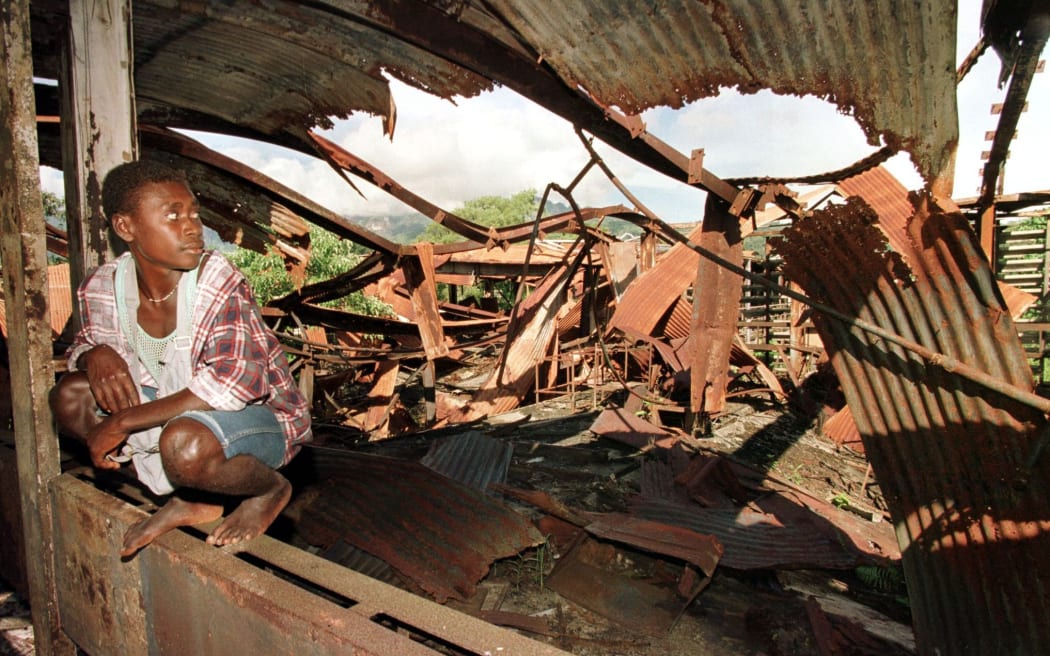
The Bougainville Civil War caused incredible devastation and loss, including this picture taken at the ruins of Arawa Hospital in 1997. Photo: AFP
It was that uncertainty that spurred Peter Garuai to form the Bougainville Families of the Missing Persons Association.
Mr Garuai's 20-year-old brother, Benedict, joined the fight in 1993 and was killed later that year. His family never heard what happened to Benedict.
"He was killed during the combat here in Arawa," said Mr Garuai. "The defence force killed him, but we've never known where he was buried. It was a dirty little war, here in Bougainville."
"I formed this association because of the pain that lingered in my mind that my brother, he has to come back," he said. "So this association tries to bring back normalcy to the lives of the missing people's families."
The now Autonomous Bougainville Government, formed under the peace agreement signed at the end of the conflict, adopted a policy on missing persons late last year, but little has come from it so far.
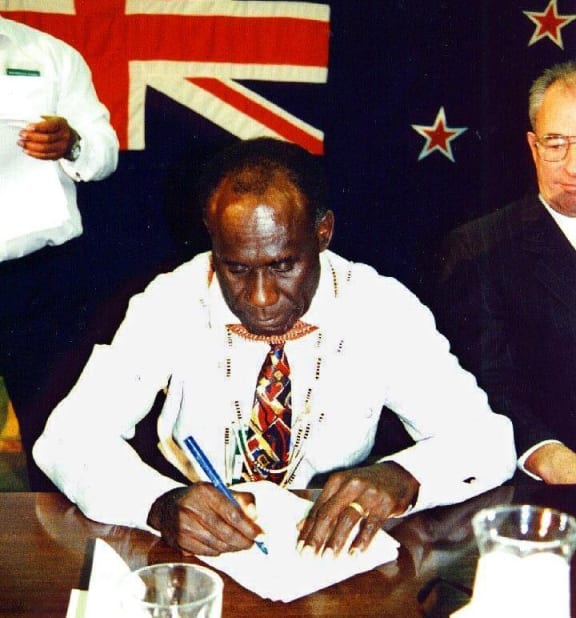
PNG Bougainville Premier Gerard Sinato signs the "Burnham Declaration" in 1997, which set in motion an end to the civil war. Photo: AFP
Government urged to do more
That's prompted many of the relatives of the disappeared to march through the towns of Buka and Arawa this week in an effort to highlight their ongoing battle for answers, and to call for more to be done to ensure that remains are returned to home villages.
Peter Garuai says the government needs to take note of the families' cries in order to build a foundation for a referendum on possible independence for Bougainville, which is likely to be held in 2019.
Bougainville's president, John Momis, says he accepts the ABG does need to do more to work out the whereabouts of the missing, but funding has been an issue.
"The ABG first of all has to engage people who are in the know and also find funds to fund it because it won't be done for nothing," said Mr Momis. "I'm not saying it hasn't been the top priority, we have had problems with the National Government giving us our legitimate financial budgetary allocations, and all these things have taken up our time."
John Momis said he hopes to work with the Red Cross and donor countries to make the missing persons policy more effective.

